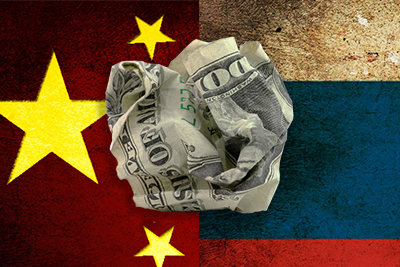
It is no secret that Russia and China would like to see a world without the U.S. dollar holding the position of reserve currency. In this capacity, the dollar acts as the “petrodollar,” meaning that it is the only currency in which oil can be purchased. Most experts could not foresee a time in the near future where the dollar could be challenged for this coveted spot. Now a deal between Russian oil giant Gazprom Neft and China, to conduct business in rubles and yuan, could be the first major blow dealt to the U.S. dollar’s status.
Gazprom Neft is technically a private company, but the Russian government currently holds a majority stake. This means that this latest agreement is really a deal between the Russian and Chinese governments looking to intentionally bypass use of the U.S. dollar. Russia and China have been discussing a deal like this for months, but nothing had ever made it passed the planning phase.
According to Zero Hedge, “this all changed in late June when first Gazprom’s CFO announced the gas giant was ready to settle China contracts in yuan or rubles, and at the same time the People’s Bank of China announced that its Assistant Governor Jin Qi and Russian central bank Deputy Chairman Dmitry Skobelkin held a meeting in which they discussed cooperating on project and traded financing using local currencies.”
While these meetings were giant steps towards usurping the petrodollar, once again things still seemed stuck in the design phase. That is until this latest announcement from Russian business website Ria Novosti, as reported by Zero Hedge:
“Gazprom Neft has agreed to export 80,000 tons of oil from Novoportovskoye field in the Artic; it will accept payment in rubles, and will also deliver oil via the Eastern Siberia-Pacific Ocean pipeline (ESPO), accepting payment in Chinese yuan for the transfers.”
This deal has moved out of the discussion phase and is now in the finalizing stages. It signals the first real move by China and Russia to create a petrodollar-free world. If the U.S. dollar were to lose its status as the petrodollar and the world’s reserve currency, it would be a major blow to the value of the U.S. dollar, leading directly to inflation.


